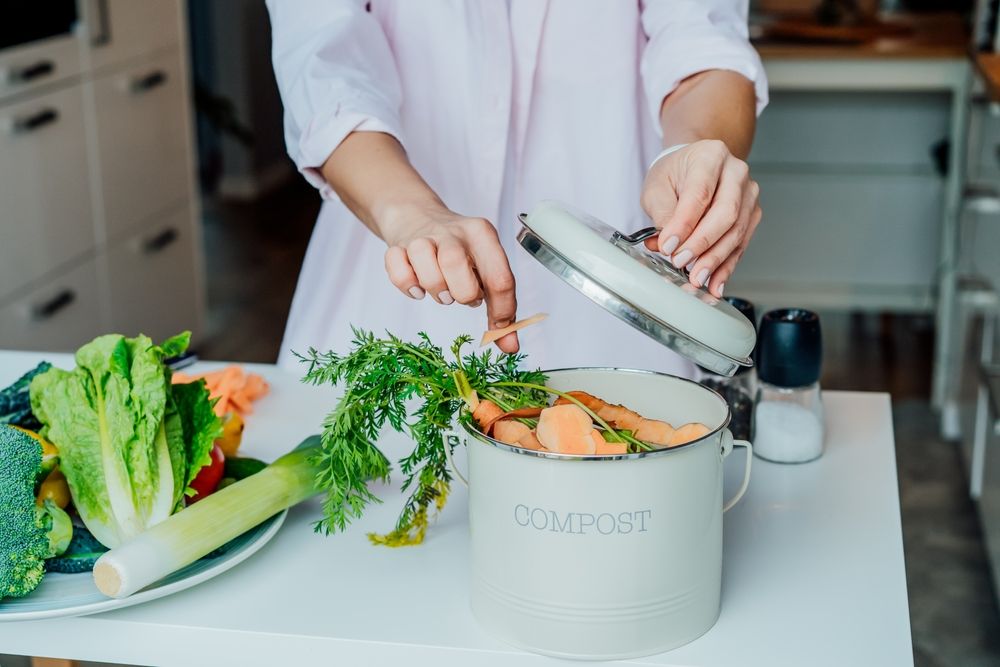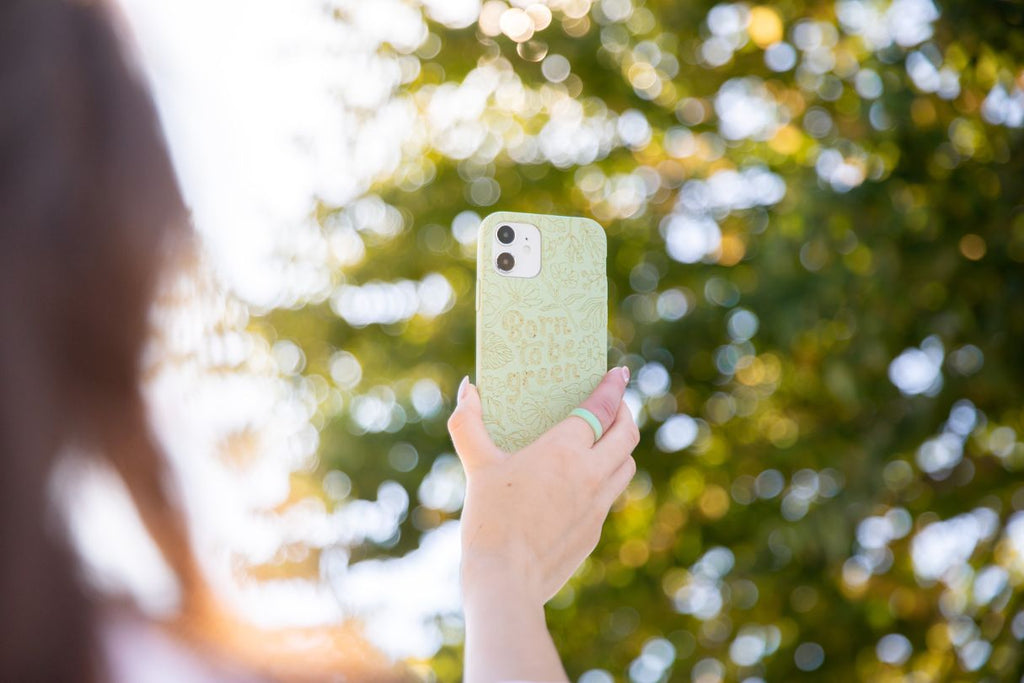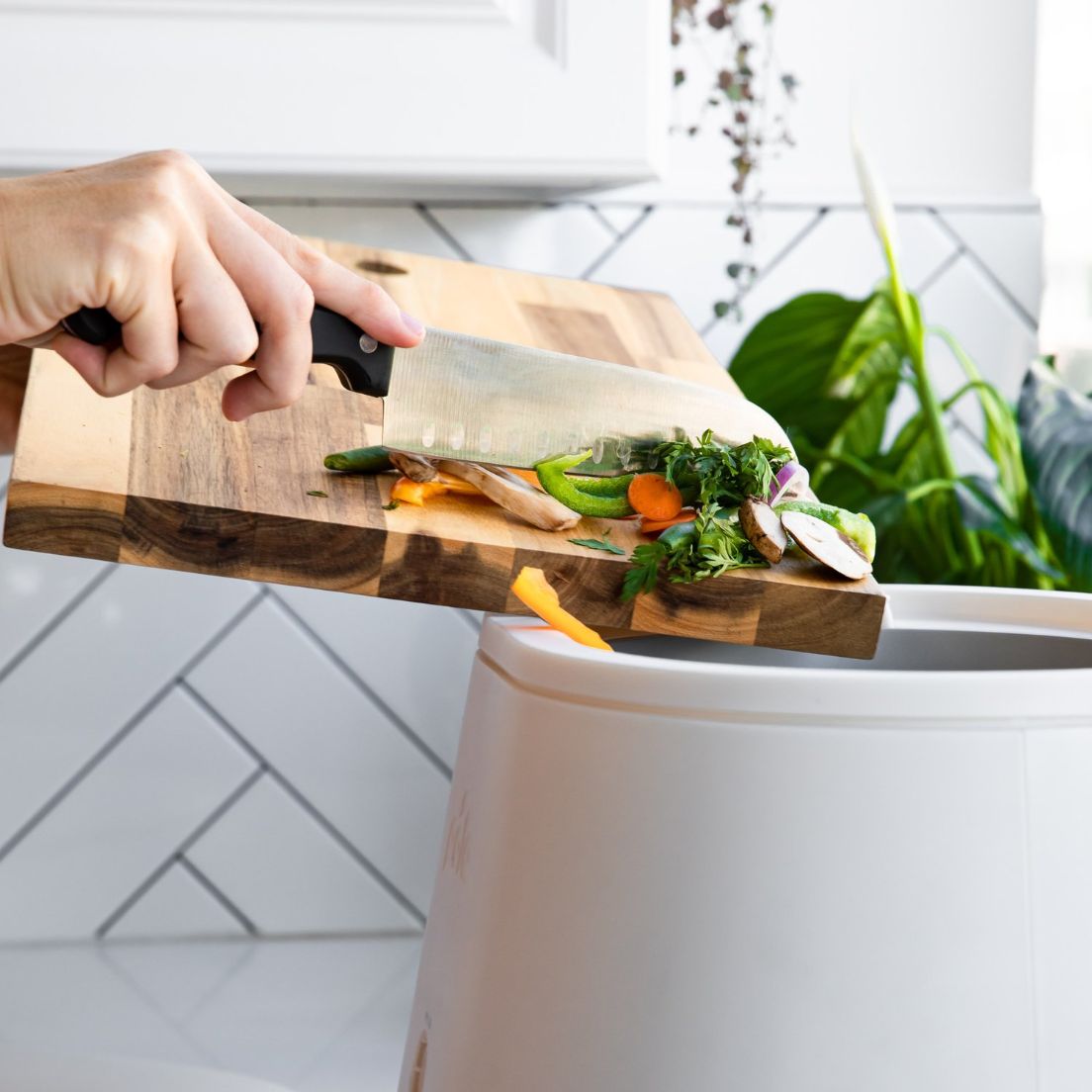
You finally mastered recycling. Nice work! You memorized all the charts, special ordered a recycling bin for your home, and finally, once and for all, discovered that pizza boxes can be recycled. Now, your natural next step for fighting against climate change is to start a compost pile or to order a Lomi home composter for your kitchen.
You've heard that compost positively impacts the environment, but wait—what does compostable actually mean? Today, we'll look at the true meaning of "compostable”, how it compares to biodegradable products, and tips for composting raw materials you use and consume on a daily basis. After you've finished reading, you'll understand more about what to compost and what not to compost in your home garden, green bin or Lomi.
Review these helpful links below to discover the information you're most curious about.
Table of contents
Before we compare biodegradable and compostable products, let's look at what the word, "compostable" really means.
What does compostable mean?

A “compostable” item is made entirely from carbon-based biomaterials like leaves, wood, and plant fibers. A compostable product must be broken down completely by microorganisms within a short span of time. Pure compostable products won't pollute the earth with toxic residues or harsh chemicals.
Basically, something that is compostable will completely decompose into organic matter if left for a few months in a composting environment. This method of recycling organic waste transforms unwanted natural matter into a nutrient-rich biomass with the help of beneficial bacteria, fungi, and heat.
When a non-food item is marketed as "compostable plastic", it's important to remember that bioplastics will not naturally decompose if they're trapped inside a plastic bag destined for a landfill. They require a specific temperature and time component to successfully break down organic substances into carbon dioxide, water, and biomass. Because of this, it may not be appropriate to throw these items into your home compost bin either.
If your city provides a green bin for organics, toss bioplastics into these bins instead. They’ll be sent to a municipal or industrial composting center where they will quickly disintegrate in a controlled environment. The top-tier European standard - EN 13432, requires industrial composting facilities to break down all compostable goods within 12 weeks and to fully biodegrade them after six months.
Biodegradable vs compostable: what’s the difference?

To help you decipher between biodegradable vs compostable products, we've highlighted the essential differences between the two. Keep reading to understand how these terms compare to one another.
Biodegradable materials will eventually completely degrade. But the time component required for these materials to break down is undetermined. This means that a biodegradable product could exist for decades or even centuries before it starts to degrade.
Biodegradable products will rarely break down efficiently in a composting environment unless it is redirected to a commercial composting facility. Even still, some biodegradable plastic products are made entirely from petroleum based plastic and can not be composted.
Compostable materials will fully degrade within a defined period of time. Usually, finished compost turns into nutrient dense humus within a few months of disposal. Compostable products are not suitable for disposal in landfills, and instead should be added to commercial or home compost heaps.
Compostable products require the assistance of beneficial microorganisms to break down a compost pile quickly and efficiently. Once their biological processes are complete, they leave no trace once fully decomposed.
Now that you understand the difference between biodegradable and compostable, let's look at all the things you can (and should!) start composting at home.
Things you should be composting at home
If you are a seasoned composter, you probably already have a bunch of items you regularly add to your pile. If you are new to composting, you are probably wondering what things you should be composting, but aren’t. No matter whether you are an old pro or a total newb, we’ve got the skinny on some items that you should be composting every time:

For the purposes of this list, we’ve broken compostable materials up by where you’ll find them at home, but it’s important to know that compostable materials are most often defined as either “brown materials” or “green materials”. Brown materials (i.e. fallen leaves, cardboard, and hair) are carbon-rich, while green materials (i.e. grass clippings, pasta, and eggshells) are nitrogen-rich, and both play an important role in balancing the health and composition of your compost.
Top 8 compostable items you should use
Compostable plastics are gaining more momentum than ever now. Now, it's not uncommon for cafes and restaurants to fulfill your takeaway order with compostable cutlery, bamboo straws, and coffee cups lined with bioplastic. To continue building towards the sustainable future our planet deserves, consider swapping out your everyday plastic products with these eight compost-friendly items.
1. Compostable bags

Compostable plastic bags are made from plant based raw materials and are broken down into non-toxic remnants through the composting process. The best thing about these plastic bags? They won't leave any toxic residue in the environment.
Although compost bags aren't required if you own a home compost machine, they certainly do make life easier if you’re tossing food scraps into a kitchen composting bucket. Check your compostable bags to ensure they can properly breakdown in your home garden. Otherwise, they may need to be sent to a commercial composting facility to fully deteriorated.
Pro tip: Having trouble switching from plastic to canvas grocery bags? If you prefer the compact size of plastic, companies like Good Start Packaging offer eco friendly grocery bags made with biodegradable and compostable plastics. Store a handful of their compostable shopping bags in your glove box to keep them handy for last-minute food runs.
2. Compostable phone cases

Every little bit counts on your zero waste journey, including your phone case. Whereas many mobile covers are created from petroleum based plastic, compostable cell phone cases are constructed from plant materials like flax straw, bamboo, and cork. When you consider that 1.43 billion phones were sold around the world in 2021 alone, the positive environmental benefits of compostable phone cases make the switch, 100% worth it.
Pro tip: Once your eco friendly phone case reaches the end of its protective services, toss it into a Lomi electric composter. Unlike the traditional composting process which takes months to create compost product, this top-rated composter machine breaks down Lomi approved items into nutrient rich dirt in less than a day.

3. Compostable coffee cups, pods and filters

Although we've been conditioned for years to drink our iced lattes from clear petroleum based plastic cups, the era of disposable products is quickly coming to an end. Now, even Starbucks is phasing out single use cups in favor of more sustainable solutions.
But you don't have to wait around for Starbucks to begin a sustainable coffee drinking routine, you can start today! Brew your morning java using paper coffee filters or with a compostable Keurig coffee pod. When you're finished, toss the filters and pods into a Lomi kitchen composter and you're ready to greet the day!
Pro tip: If you want to relive those takeaway iced latte days with compostable cups, pick up a case of compostable straws and let the early 2000's nostalgia set in. Not a coffee drinker? Look for tea bags made with compost friendly packaging instead.
4. Compostable packaging and mailers

If you're ready to mail off a few of your favorite sustainable gifts to your best friend for her birthday, it's time you make the switch to compostable packaging supplies. As ecommerce shopping expands globally, compostable mailers and packaging materials are essential to have on hand. In 2021 alone, 4.9 trillion U.S. dollars were spent on ecommerce items throughout the world. So, 4.9 trillion plastic mailers really adds up to be a lot of waste!
Pro tip: More compostable packaging options are popping up in global retail and in food service. but it's important to read the fine print before you reach for the first biodegradable shipping materials you see. If you see biobags made of "biodegradable" plastic, remember that not every plastic that is biodegradable is compostable.
5. Compostable cups, plates and bowls

If you've ever witnessed an older relative pull out a stash of plastic plates in lieu of proper dishware, it's time you introduce them to compostable dinnerware. Compostables plates, bowls and cups also come in handy when you don't want to worry about toting around heavy ceramic plates to your picnic in the park. Don't forget to bring your compostable forks and spoons!
Pro tip: Add a little class to your picnic and bring along wine glasses made from compostable plastics. Great for a splash of pinot or a guilt-free glass sip of bubbly water. Cheers to the environment!
6. Compostable diapers

Compostable diapers are great for eco friendly parents who care about the environment but don't care for infinite loads of laundry. Compostable diapers are made with environment-friendly viscose bamboo and plant sourced materials like PLA films.
To make your life even easier, B Corp company Dyper, has a ReDyper home collection program. Plop used baby diapers outside your front door and they'll pick them up and take them to their industrial facility to be composted.
Pro tip: Use compost bags to throw all your diapers into.
7. Compostable sponges

A small but mighty addition to any zero waste kitchen. While traditional sponges shed tiny micro plastic pieces that go down your sink drain, sponges made with organic materials won't pollute our waterways. Compost-friendly dish sponges are made from natural elements such as recycled coffee sacks, cotton, cellulose, and coconut husk.
Pro tip: We love using coconut husk sponges for scrubbing away caked-on residue and tough dish stains.
8. Compostable pet supplies

Even our furry sidekicks can help save the environment from single use plastics. With compostable poop bags, you no longer have to decide between leaving your dog's waste at the park or wasting another plastic bag to pick it up.
Hey, cat owners-this one's for you. Did you know that certain types of cat litter can be composted? Yea! Typically, these are made from completely biodegradable substances such as wood, pine, corn, and coconut husk. However, some raw materials used for litter, like clay and sand, will not compost. Be sure to scoop up those soiled litter clumps into fully biodegradable plastic bags.
Pro tip: For fun compostable pet toys, EarthHero brand Ware of the Dog sells adorable crotched chew buddies. They are made from organic cotton, recycled t-shirts, and certified OEKO-TEX dyes. Great for the planet and much better for your puppy's tummy compared to the polyester throw pillows he's torn into.
Lomi - a simple solution for home composting

Plastic and other consumer waste pollution have begun to overrun the planet, a problem which has inspired many environmentalists and motivated humans to take action. But wading through the details of how to compost and all the "do's" and "don'ts" can feel, well, a little like wading through a pile of compost.
Be patient as you navigate the differences between biodegradable and compostable products-you're not alone! Corporations and retailers will happily slap an "eco friendly" or biodegradable" sticker onto their product for marketing purposes. This misleading information is actually referred to as "green-washing" and in response to these misleading claims, The Federal Trade Commission published Green Guides to thwart this negative environmental impact caused by false marketing.

Pela is a certified B Corp company working hard to reduce plastic pollution, one phone case at a time. Since starting the company over 10 years ago, they’ve also introduced the powerful electric kitchen composter, Lomi! Lomi breaks down rotten and smelly organic substances into odorless, organic dirt in less than four hours. But guess what? Lomi doesn't stop there!
With more biodegradable and compostable plastics at our doorstep, they’ve designed a "Lomi Approved" cycle for bioplastics and non-food compostable items. This cycle breaks down bioplastics and transforms them into compost for your garden.
If you're truly determined to reduce your carbon footprint on this earth, buying a Lomi is one the best steps you can take towards that goal. When food waste isn't properly composted, it produces methane gas, a greenhouse gas worse than carbon dioxide. That’s why we’re confident when we say that Lomi is a must-have kitchen appliance for anyone interested in home composting or sustainable living.
So, if you've already taught yourself how to recycle properly, you’ll be well on your way to start composting like a pro once Lomi arrives at your doorstep. We believe in you! Skip the mess and confusion and discover Lomi for your home kitchen today!
Written by: Anna Buck



